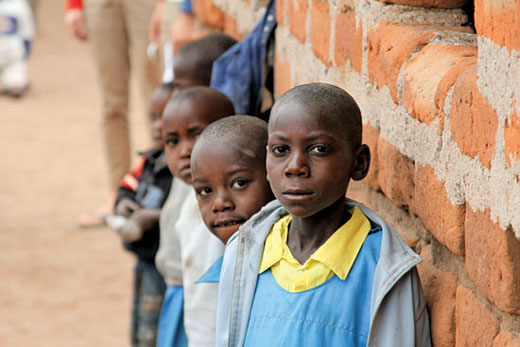Last summer, on the Fourth of July, dual-degree student Trey Comstock found himself worlds away from his hometown of Houston, Texas. He was living in rural Kenya in Nyumbani village, a thousand-acre community of about a thousand residents who have lost family members to HIV/AIDS—some nine hundred orphaned children and more than one hundred older adults, all "grandparents," who care for them.
About the time Houston was preparing for cookouts and fireworks, Comstock was visiting primary schools outside the village, testing the children for malnutrition by measuring the circumference of their arms. He wrote the following post on his blog:
"The work itself is both interesting and heartbreaking. The interesting part is that it is very different from the work that I have been doing so far. Up until now, it has looked a lot like pastoring or being an IT guy... This work represents my first foray into the ins and outs of public health fieldwork. A lot of what one does as a public health professional is gather data to make informed decisions about programs and resource allocation. To me, this is a good lead into my first year at Rollins School of Public Health in the fall."
Comstock was drawn to Emory specifically for its dual-degree program in theology and public health, a four-year commitment that results in a master's degree in both fields. The establishment of the program was a joint effort among the Religion and Public Health Collaborative, Candler School of Theology, the Rollins School of Public Health (RSPH), and the Interfaith Health Program (IHP). There are only a few such programs in the country.

